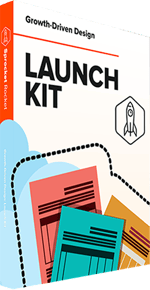Sleep can be very elusive to some. You may work long hours, have a family or young children, or you just can't seem get enough sleep no matter what time you go to bed. But if you can't get MORE sleep, then what can you do?
I often talk about recovery with my athletes and patients, and that includes sleep, and the power of getting BETTER sleep, not just more hours. If we can improve the quality of our sleep without changing the quantity, we can make drastic changes in our feelings of restfulness and our preparedness for the day.
Honestly, none of these ideas were not formulated by me. These are all included in the book "Why We Sleep" by Matthew Walker. He is a world renowned neuroscientist and sleep expert. This book changed the way I look at sleep and breaking down the small details of how important getting quality sleep is, not just adding more hours.
Here are 4 important take home points from the book, and how you can apply them right away!
1. Do not use devices in bed
I hope I didn't lose you already lol. The blue light from our devices (think anything with a screen) hinders our brains ability to enter into a sleepy state by blocking the release of melatonin. When our body does not release melatonin it thinks it is still day time, and our normal circadian rhythm is thrown off. This causes a delay in falling asleep AND entering into REM sleep- which is the most restorative sleep cycle. A good rule of thumb is to NEVER use any device while in bed (phone, TV, laptop, tablet) and to avoid use of any screens for 1 hour before bed.
2. Do not drink caffeine after lunch
Caffeine helps us get through the day, but it can also make the next day even worse! Caffeine has a long half life-or the time it takes to break down after ingesting. Taking in any caffeine within 8-10 hours of sleep will delay your body from entering into the deeper stages of sleep. The caffeine blocks adenosine receptors in your brain, which is what your body uses to make you feel sleepy. I recommend not ingesting caffeine less than 8-10 hours from bedtime to make sure it has had adequate time to work its way out of your system.
And for those that say you can drink coffee in the evening and it doesn't affect you-I can guarantee that your body is still affected because the effects of the caffeine still prevent your brain from entering deeper stages of sleep
3. Do not drink alcohol before bed
Who doesn't like a drink with dinner? While your brain may not be too affected with 1 drink, there are still internal changes happening that you can't see. The connections in your brain don't work together nearly as efficiently, so the communication loop is thrown off whack. This all limits your brains ability to transition in the different stages of sleep and get to those deeper stages that leave you feeling well rested the next day.
For those that claim alcohol makes you sleep harder-I can guarantee you that is not true. Alcohol is a sedative which promotes relaxation and sleepiness, but it significantly inhibits your brain from entering deeper stages of sleep-which again-are the most restorative.
4. Go to bed and wake up at the same time
This one might be hardest one for some people-mostly because their weekday and weekend schedules vary so much. When we go to bed and wake up at the same times, our brain gets into a consistent pattern of when it thinks it should rest and recover, and when it thinks it should be awake. Having large swings in your sleep and wake times prevents this natural cycle from occurring which (surprise) prevents you from getting more restful and restorative sleep.
I am glad to see more people acknlowedging the importance of improving sleep quality, and not just quantity. If we can make small improvements to our daily habits and routines, we can make drastic overall changes in our health and wellness. If you are always feeling tired, needing caffeine to get through the day, I urge you to give these a try. Implement them 1 by 1, and don't worry about doing them all at once. Overwhelming yourself with change is a good way to stay exactly where you are now!




Comments